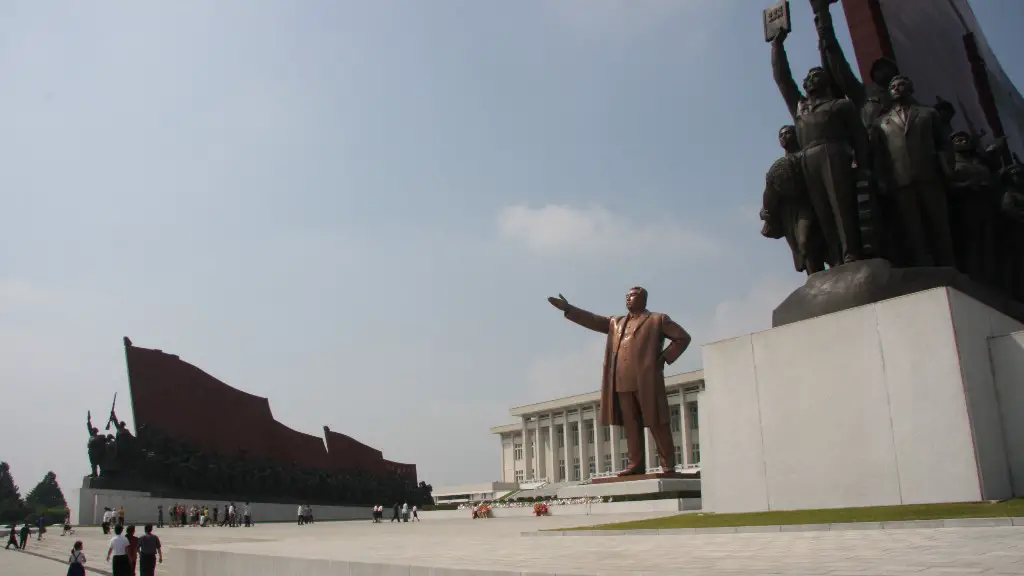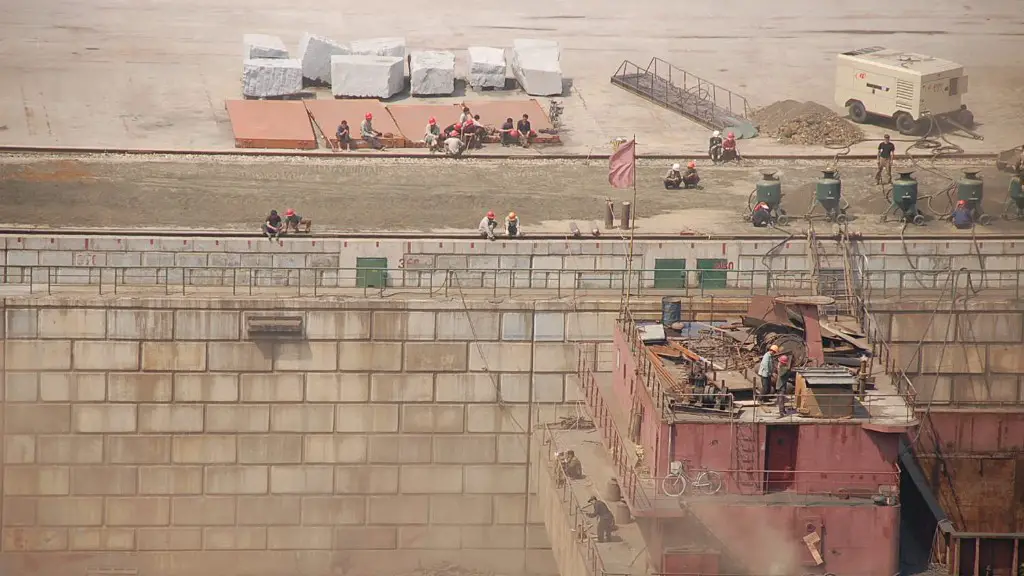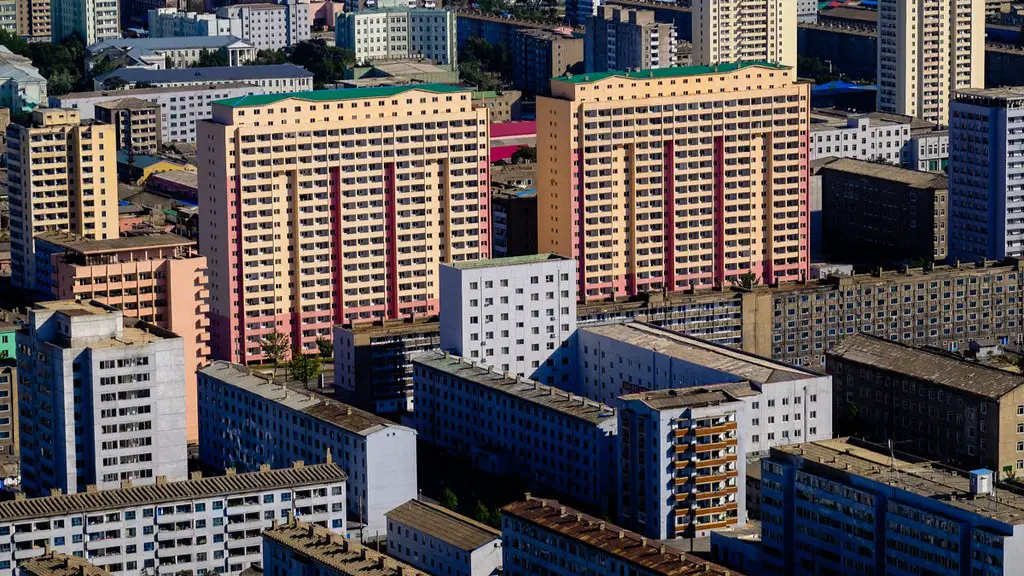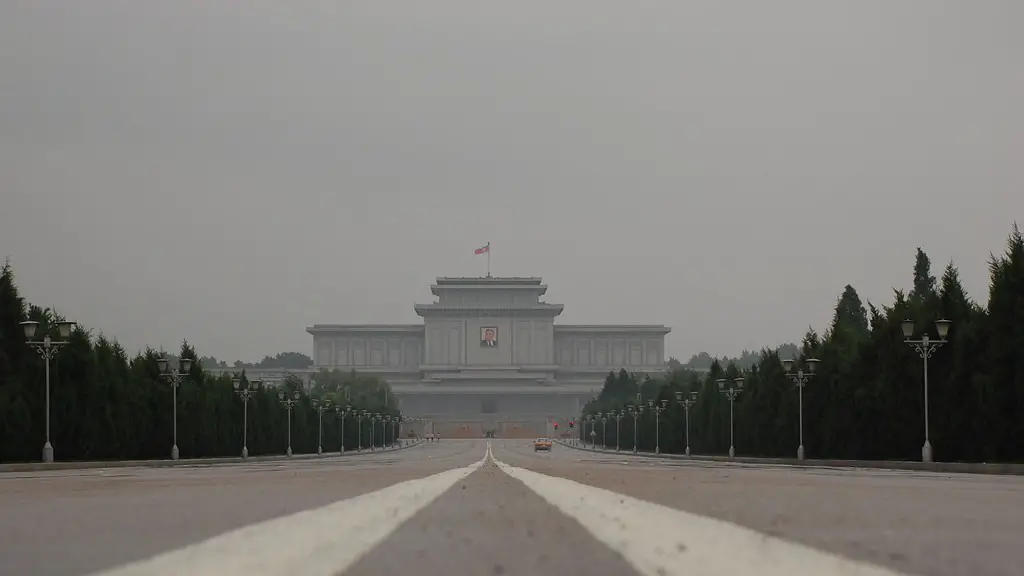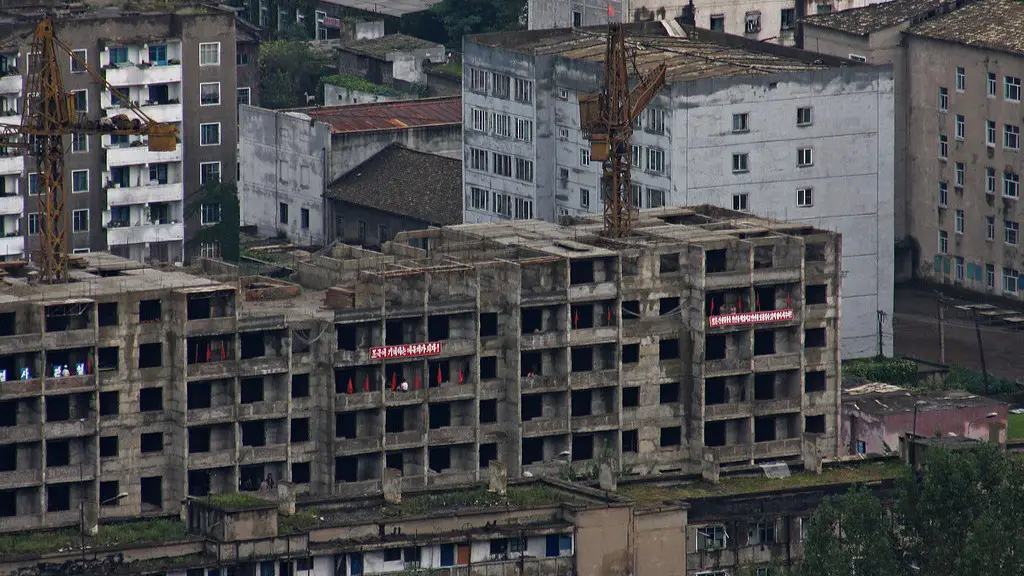Military Advancement
Since the division of North and South Korea after the Korean War in 1953, North Korea has been locked in a bitter standoff with its neighbors and is now one of the most heavily militarized regions in the world. North Korea has continuously sought to strengthen its military capabilities and has consistently tested missiles in recent years as a sign of provocation and its readiness to go to war.
In the past five years alone, the regime has tested hundreds of short and medium-range ballistic missiles, as well as testing its first Intercontinental Ballistic Missile (ICBM) in 2017 and most recently, a submarine-launched ballistic missile. The regime’s missile tests have consistently drawn the attention and condemnation of the international community as well as causing concern in the region and beyond.
Infamously known for its repeated violations of international law, the regime’s goals of testing its arsenal are largely centered around increasing its military capabilities and developing a more powerful deterrent to its perceived enemies, primarily South Korea and the United States. North Korea has stated that the goal of its weapons development is self-defense and the maintenance of peace and stability in the region.
Regional Tensions
However, the tests have inevitably stoked fears of escalating tensions in the region. The most significant test in 2017 was of the ICBM, which demonstrated that North Korea had the capability to reach as far as the west coast of the United States. This was followed by increasing sanctions directed at North Korea by the ten members of the United Nations Security Council.
Testing of missiles has become an almost regular occurrence since then, with North Korea having conducted over twenty tests so far this year. Whilst being provocative in nature, the tests have served a purpose in allowing the regime to evaluate the performance of its weapons and by extension, its advancing technical capabilities.
Consequently, some experts believe that the tests are used as a symbolic gesture to deter any potential destabilization or threats to its sovereignity. Through the tests, North Korea is able to remind the international community of its military capabilities and that it is ready and willing to utilize them if necessary.
Domestic Politics
More recently, some commentators have postulated that missile tests are also conducted in order to strengthen the reputation of the regime domestically. Current leader Kim Jong Un and previous leader Kim Jong Il have used the tests as an opportunity to reinforce their wider message of rejecting foreign interference and resistance to a hostile outside world.
By showing off its weapons programe, the regime is able to maintain the support of the public by demonstrating its firm commitment to defending the nation’s sovereignty. In the past, the regime has gone as far as to declare ‘victory’ following missile tests, in a clear effort to project power and patriotism amongst its citizens.
This kind of ‘rallying’ of public opinion also serves to deflect attention away from the numerous human rights abuses going on inside the country. By focusing on the tests, the government is able to direct public attention away from the many flaws of its oppressive rule of the state.
The Role of Sanctions
The international community’s responses to North Korea’s missile tests has typically been the introduction of more sanctions on the country. Whilst these sanctions have largely functioned to diminish nuclear ambitions and limit the ability of North Korea to purchase the materials needed to develop its military capabilities, they have had little success in deterring the regime’s missile tests.
In addition, due to the nature of North Korea’s state-controlled economy, the ordinary citizen remains largely unaffected by the sanctions, with the effects falling mainly on the ruling elite who, as previously mentioned, have utilised the tests to increase their own power and prestige, a major driving force behind the tests
Therefore, whilst sanctions on North Korea may have some effect in reducing its nuclear ambitions, it is unlikely that these will serve to hinder its missile tests due to the domestic political benefits that the regime obtains from these.
U.S. Diplomatic Relations
With North Korea predominantly perceived to be a ‘rogue state’ by much of the international community, current US President Donald Trump has made attempts to improve relations and put an end to the country’s missile testing programme.
Trump’s efforts have included a number of high-profile summit meetings, most recently with the summit between Trump and Kim Jong Un in Hanoi in 2019. Although no concrete deal was made in that particular meeting, the summit is a sign of the possible thaw in US-North Korean relations that may have the potential to bring an eventual halt to the missile tests.
In the long run, it is likely that a verifiable end to North Korean’s missile tests will be achieved by diplomatic means instead of foreign intervention or international sanctions. As such, the United States’ continuous efforts to establish a dialogue with North Korea and correspondingly, North Korea’s willingness to engage in such talks, could be a crucial step to achieving a more peaceful and stable environment in the region.
International Cooperation
For now, it is up to the major players in the region and wider international community to cooperate and implement strategies that lead to a more peaceful resolution. Finding a way for North Korea to ensure its own security and protect its own citizens, whilst also meeting the demands of the wider international community will remain a challenge in the years to come.
Ultimately, only time will tell as to whether or not North Korea will carry on testing its missiles and the consequences of that decision. Whatever the path the regime decides to take, it is clear that if any form of long-term peace and stability is to be achieved, then it must begin with international cooperation and diplomatic dialogue.
Global Awareness
With that being said, the international community has an important role to play to ensure that missiles tests are viewed as issues beyond North Korea itself. This includes understanding the wider geopolitical context behind North Korea’s missile tests and the potential implications for global security and peace.
It is important to remember that North Korea’s weapons development does not exist in a vacuum but is a manifestation of wider issues such as poverty, human rights violations, militarism, and the global geopolitics.
Taking a wider view of North Korea’s missile tests and using this to find common ground with the state can be an important step to helping to promote better international relations and greater regional cooperation.
By raising greater awareness of these issues, and recognizing their international relevance, it is possible that a peaceful resolution to the issue of North Korea’s missile tests can be found.
Social Movements
Alongside international cooperation, raising awareness of the wider geopolitical context of North Korea’s missile tests can also be promoted through social movements, such as campaigns that focus on disarmament and peace-building.
These campaigns can serve to bring attention to not just the issue of North Korea’s missile tests but also to the potential for global disarmament. They can help to educate on the wider geopolitical context and why no country should strive for nuclear weapons, but towards working together to build a more secure and peaceful world.
By addressing the wider issues that cause North Korea to continue its missile tests and by inspiring its citizens to become more engaged in global peace-building, it is possible that a resolution to North Korea’s missile tests can be found. That resolution will not only seek to change the way North Korea approaches its own missile tests but it can also serve as an example for other countries to follow.
